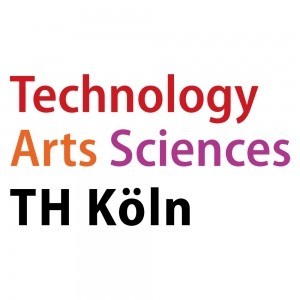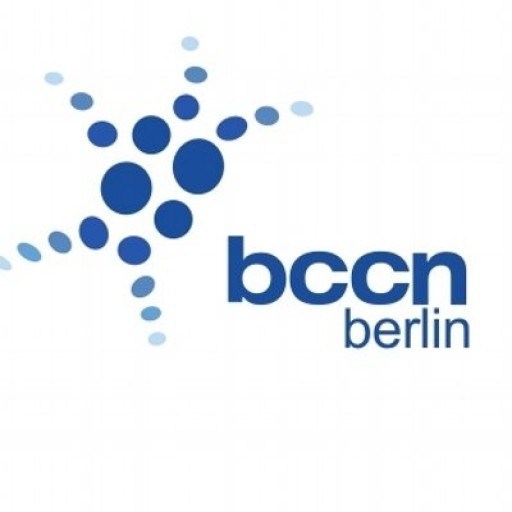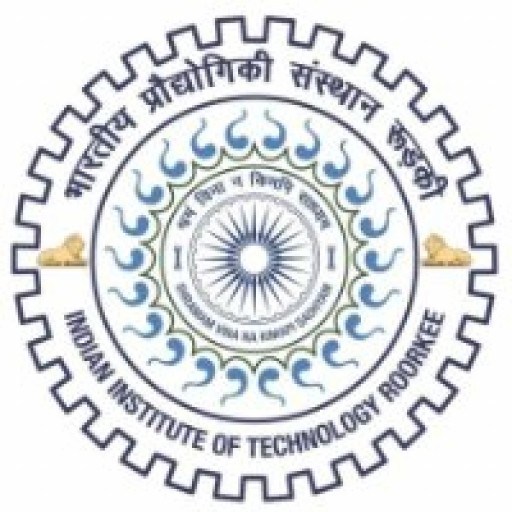Photos of university / #uniessex
Combatting cyber threats, developing innovative software solutions, and understanding complex algorithms are just a few of the challenges tackled in the Bachelor of Science (BSc) in Computer Science at the University of Essex. This comprehensive programme is designed to equip students with a strong foundation in the fundamental principles of computing while also providing opportunities to specialise in areas such as artificial intelligence, data science, software engineering, and cybersecurity. Throughout the course, students engage with a diverse curriculum that combines theoretical knowledge with practical skills, ensuring they are well-prepared for careers in the rapidly evolving tech industry or for further research and study.
The programme begins with core modules that introduce programming languages, computer systems, and mathematical concepts underpinning computing. As students progress, they explore more advanced topics including database systems, networking, software development, and machine learning. Dedicated modules in cybersecurity and ethical hacking prepare students to safeguard digital infrastructure and understand the legal and ethical considerations of technology use. The extensive use of laboratory sessions, group projects, and industry placements fosters teamwork, problem-solving abilities, and real-world experience, making students confident in designing, implementing, and managing complex software solutions.
The university’s strong links with industry partners provide students with valuable internship opportunities and exposure to the latest technological trends. Students also have access to state-of-the-art laboratories and computing facilities that support innovative research and hands-on learning. The programme emphasizes critical thinking, creativity, and continuous learning, reflecting the dynamic nature of the computer science field. Graduates of this programme are well-positioned for diverse roles in software development, system analysis, AI, cybersecurity, and data analysis, or to pursue postgraduate study. The BSc in Computer Science at the University of Essex aims to produce highly skilled, adaptable, and forward-thinking computing professionals ready to meet the demands of the digital age.
Program Overview:
The Bachelor of Science in Computer Science at the University of Essex offers students an in-depth understanding of the fundamental principles and innovative developments within the field of computing. This comprehensive programme is designed to equip students with the technical skills, problem-solving abilities, and theoretical knowledge needed to excel in a rapidly evolving digital world. Throughout the course, students engage with a wide range of topics including programming, software development, algorithms, data structures, computer systems, networking, databases, and cybersecurity.
The programme begins with a strong foundation in programming languages such as Java, Python, and C++, ensuring students develop robust coding skills. As students progress, they explore core areas like systems analysis, design, and the implementation of software solutions. The curriculum also emphasizes understanding the theoretical underpinnings of computing, including formal methods, computational theory, and mathematical foundations. These core modules are complemented by practical coursework, group projects, and laboratory work that foster teamwork and real-world problem-solving abilities.
Specialization options are available for students interested in particular areas of computing, such as artificial intelligence, machine learning, human-computer interaction, or computer graphics. The programme encourages innovation and creativity, providing opportunities to undertake research projects, internships, and industry collaborations. This ensures graduates are well-prepared for employment in diverse roles within the IT sector or for postgraduate study.
The university also integrates experiential learning into the programme through modern labs, coding workshops, and industry engagement activities. Students gain experience using current technology and tools, preparing them for current and future industry demands. The academic staff are experts in their fields, delivering cutting-edge research and engaging with industry partners to keep the curriculum relevant and up-to-date.
Graduates from the Computer Science programme at the University of Essex will be equipped with a versatile skill set that includes programming, systems analysis, cybersecurity, and data management. They will be prepared for careers across various sectors such as software development, data analysis, cybersecurity, and IT consultancy. Additionally, the qualification provides a strong foundation for those wishing to pursue postgraduate studies or research positions within academia.
Overall, the Computer Science programme at the University of Essex aims to develop highly skilled, innovative, and adaptable professionals ready to meet the challenges of the digital age. Its blend of theory and practical application, combined with strong links to industry, ensures students gain the competencies and confidence needed for successful careers in computing and technology.
Minimum Entry Requirements: For admission to the BSc Computer Science programme at the University of Essex, applicants are typically required to have a minimum of 104 UCAS tariff points, which can be achieved through qualifications such as A-Levels, BTEC Extended Diplomas, or International Baccalaureate. Offers may vary depending on the applicant's overall profile and subject background. Prospective students are expected to demonstrate proficiency in mathematics, with some prerequisites in calculus or related areas preferred. A good command of English is essential, usually evidenced by IELTS scores of 6.0 or equivalent for international students. Applications are evaluated holistically, considering academic achievements, personal statement, and references.
Programme Structure: The Bachelor of Science in Computer Science at the University of Essex is structured to provide a comprehensive understanding of computing principles, programming, systems design, and applied technologies. The programme typically spans three years full-time study, with optional placements or study abroad opportunities. Students undertake core modules covering programming languages, algorithms, data structures, computer architecture, databases, networking, and software development methodologies. In addition, there are optional modules enabling specialization in areas such as artificial intelligence, cybersecurity, human-computer interaction, or data science.
Assessment Methods: Assessment within the programme includes a combination of coursework submissions, programming projects, presentations, and written examinations. Coursework may involve individual assignments, group projects, and practical tasks designed to develop problem-solving skills and technical proficiency. The programme emphasizes both theoretical understanding and practical application, preparing students for careers in industry or further academic research.
Graduation Requirements: To graduate with a BSc in Computer Science, students must successfully complete a minimum of 120 UK credits each year, including core and optional modules, and achieve the required pass marks. Additionally, students involved in placement modules are assessed through reports and supervisor evaluations. A final year dissertation or project is typically required, enabling application of skills to real-world problems. Once all assessments are successfully completed, students are awarded the degree, which is recognized internationally.
Additional Notes: The programme aligns with industry standards and equips graduates with skills in programming, systems analysis, and project management. It also emphasizes employability through workshops, guest lectures, and industry collaborations. Students are encouraged to participate in internships and extra-curricular activities to enhance their professional development.
Language of Instruction: The programme is delivered entirely in English. International students must demonstrate proficiency through standardized tests such as IELTS or TOEFL, meeting the minimum score requirements specified by the university.
Special Features: The University of Essex offers state-of-the-art laboratories, dedicated computing facilities, and access to software development environments. The curriculum is regularly reviewed to incorporate emerging technologies and industry trends, ensuring graduates are well-prepared for the evolving tech sector.
The University of Essex offers various financial support options for students enrolled in the Computer Science undergraduate and postgraduate programmes. Tuition fees for international students differ from those for domestic students and are subject to annual revision. Typically, undergraduate international students can expect tuition fees to range between £14,000 and £16,000 per year, while home students benefit from lower fees, approximately £9,250 annually. Postgraduate taught programmes generally cost around £14,000 to £16,000 for international students, with domestic students paying the same as undergraduates.
Students are encouraged to explore scholarships and bursaries provided by the university, which can significantly reduce the financial burden. The University of Essex offers a variety of scholarships based on academic achievement, financial need, or specific criteria such as country of residence. For instance, the Essex Excellence Scholarships are available to high-achieving international students, offering partial tuition fee waivers. Additionally, the university provides bursaries and grants, funded both centrally and through faculties, designed to support students from diverse backgrounds.
Apart from university-specific funding, students may be eligible for external financial aid, including government-backed loans, grants, and sponsorship schemes. For EU and UK students, access to student loans through Student Finance England, Scotland, Wales, or Northern Ireland is available, which can cover tuition fees and living costs. International students often seek funding from their home governments or private scholarship programs.
Students enrolled in the Computer Science programmes are advised to carefully review the application deadlines for scholarships and financial aid, which are typically several months prior to the start of the academic year. The university's financial support office provides assistance and detailed information about eligibility, application procedures, and the necessary documentation to qualify for various funding options. Students are also encouraged to consider external part-time work opportunities on or near campus, which can supplement their income during studies, although work hours are subject to visa restrictions for international students.
Payment plans are available to help manage tuition fee payments across the academic year, offering flexibility to students facing financial challenges. The university also offers advice on managing students’ finances, budgeting tips, and access to financial planning workshops. It is recommended that students start exploring funding options early and prepare the required documentation in advance to ensure a smooth application process.
Overall, while the cost of studying Computer Science at the University of Essex can be considerable, diverse financial support options, scholarships, and payment plans are designed to assist students in financing their education, making it more accessible to a wider range of applicants.
The Bachelor of Science (BSc) in Computer Science at the University of Essex offers students a comprehensive education in the fundamental concepts and practical skills necessary for a successful career in the technology industry. The program is designed to provide a solid foundation in programming, algorithms, data structures, software development, computer systems, and networks. Students will also have opportunities to explore specialized areas such as artificial intelligence, machine learning, cybersecurity, database systems, and human-computer interaction. The curriculum emphasizes both theoretical understanding and practical application, ensuring graduates are well-prepared for industry challenges or further academic study.
Throughout the course, students will engage in a variety of learning activities, including lectures, seminars, labs, and project work. They will develop their coding skills using languages such as Java, Python, and C++, and gain hands-on experience designing, implementing, and testing software solutions. The program also emphasizes problem-solving, team collaboration, and effective communication skills, which are essential in the professional environment.
The University of Essex’s strong links with industry partners provide students with opportunities for placements, internships, and networking events, which enhance their employability upon graduation. The program is accredited and aligns with professional standards, helping students achieve chartered status in relevant engineering and computing institutions. Students also benefit from the university's modern campus facilities, dedicated computing labs, and access to the latest software and hardware tools.
In addition to the core modules, students can choose optional modules to tailor their degree to specific interests or career goals. There are also options for international study or work placements abroad, broadening cultural awareness and professional experience. The program's structure encourages independent learning, critical thinking, and continuous professional development.
Graduates of the Computer Science BSc at the University of Essex go on to pursue careers in software development, systems analysis, cybersecurity, data analysis, consultancy, and research. Many alumni have secured positions in leading technology companies, finance, government agencies, and startups. The university’s career support services assist students with CV writing, interview preparation, and job search strategies. Overall, the program aims to produce versatile, innovative, and industry-ready computer science professionals who can adapt to the rapidly evolving digital landscape.










